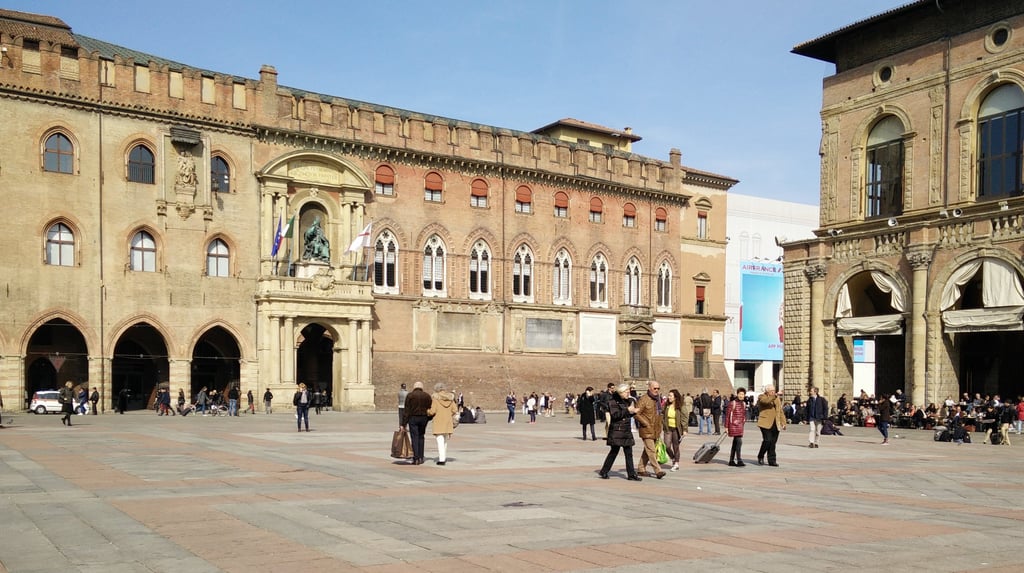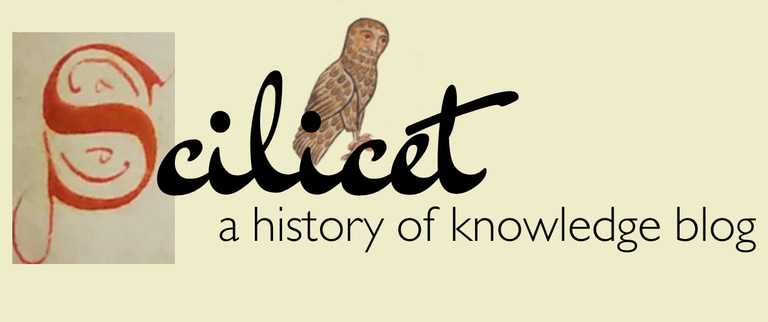Is it sometimes best not to know? Ignorance on the streets of medieval Bologna
Knowledge is great, but for some people of fourteenth-century Bologna the best option was to say 'dunno' to the authorities.


It was Francis Bacon who famously asserted that knowledge is power, but were there times when not knowing was actually more powerful? Far be it for us to endorse ignorance, but as many inhabitants of medieval Bologna knew, sometimes it was best to know what knowledge to keep to yourself.
One of the best sources for learning about medieval Bolognese street life is the registers of the Office of the Streets, which is more commonly known as the Fango (dirt) Office. These are a set of unassuming administrative documents from the 13th and 14th centuries which contain a fair amount of knowledge as well as some ignorance among Bolognese residents. The registers were written by the notaio del fango (which can be translated from Italian as the ‘rubbish notary’, although that’s a bit harsh). He was a foreign official who came to serve in the administration of Bologna for a six-month term. Among his other duties, the fango notary would go on walkabouts in the city to try and identify different violations of the urban statutes to do with cleanliness, standards of commerce, infrastructure, and so on, which he then recorded in his registers.
Examining the fango notary’s many (many!) paper notebooks written in Latin that are kept in the Bolognese State Archive, we find different types of records from proclamations to trial records, but here we will focus on one type: general inquiries. A general inquiry would take place every so often (normally once or twice a month but sometimes more frequently) and it was directed not at a specific person who committed a known offence, but rather ‘contra et adversus omnes et singulos’ (against any and all) who committed any number of offences that were listed in the inquiry. Usually there was quite a long list of these offences, and the notary would ask the general public for any information that would lead to offenders. Sometimes, a list of testimonies from witnesses who were questioned by the notary would also be included.
General inquiries
Let’s look at one such general inquiry from 25 August 1311. The fango notary during that time, Nerio, was seeking: anyone who had obstructed the way in the streets or main piazzas, people who kept stalls under the palazzo’s portico, gamblers and ne’er-do-wells who loiter in the city centre, those who keep pigs in the city, those who made non-standard bricks, and on and on it went… there were 28 articles altogether in this inquiry and there is no reason for us to review them all here. The more interesting bit starts right after this longwinded list.
Nerio interviewed three men, possibly at random, because there is no information that ties them to this inquiry. In fact, he did not even bother to document their neighbourhood or parish, as was standard practice, which would make it very difficult to find them again.
The proper way to log a name in the Bolognese records was something like: Iohannes Iacobi de capella Sancti Donati or, Giovanni son of Giacomo from the parish of San Donato. So, if one needed to find this hypothetical Giovanni, all they needed to do was to go to the parish of San Donato and ask around about Giovanni di Giacomo, someone would be able to help. The fact that this information was omitted from our general inquiry can mean that no one expected these witnesses to be of any particular help.
The men who were interviewed all had to take oaths and after all the articles of the inquiry were read to them – translated accurately into Italian (as was common practice in Bolognese courts) – they all declared that they had no information to give. This was recorded using the formula ‘he said that he knows nothing’ (dixit se nichil scire). At this point you may say, well, it’s not that unusual that three people might not know something. But the rest of the register shows that this was something of a regular occurrence.
During his term Nerio was very keen on general inquiries. He held one every two or three days, no less than 57 times altogether. The form it took was of a few offences listed as the focus of the inquiry (not quite 28 every time, usually it was around 4-5) after which a few witnesses were interviewed, each and every one of them without fail had no knowledge of any wrongdoing whatsoever. Now, that seems a bit less likely.
You may well think that maybe Nerio was just a rubbish notary who didn’t know how to interrogate witnesses properly, or maybe no one liked him and wanted to tell him anything. Well, perhaps. But he was not the only one whose records show this pattern of encountering nothing but oblivious citizens when conducting general inquiries, Andrea di Ugucio who was fango notary in 1320 had the same issue. Andrea was a bit more diligent and recorded the names of his witnesses in the proper way including their parish, but in all of his 54 general inquiries all of the witnesses said that they knew nothing.
Both Nerio and Andrea were also quite capable of conducting a witness interrogation as we can see in the many special inquiries that they recorded in their registers (these were ‘special’ rather than ‘general’ because they were based on concrete information about a specific individual or offence). But maybe there is something to the suggestion that people didn’t particularly like the fango notary and didn’t want to cooperate with him.
Dealing with officials
Imagine that some stranger who is also an agent of the government with legal powers to give fairly heavy fines came to your neighbourhood asking for information that would get your neighbours into trouble. Without making any judgement one way or the other, some people might suggest that giving such information would amount to snitching, and we all know what happens to snitches…
But seriously, the overwhelming willingness to profess ignorance can be read as a sign of social cohesion in the face of the authorities’ surveillance and enforcement efforts. The authorities may probe as much as they like, they may even promise people who reported certain crimes half of the penalty if the person they accused was convicted (which was standard around Italy at the time), but unless people had their own motives to come forward with information, they would probably avoid getting into trouble with their neighbours. It was not just awkward; it was also vital to maintain a good reputation in medieval society.
Quite often, though, people did have reasons to cooperate with the urban government, and they gave information or made complaints which helped officials to enforce the law. Neighbours would often initiate legal procedures with the fango notary and other officials in order to resolve, manage, or escalate their conflicts with neighbours, and we will come back to those in the future. Generally, the degree to which the relations between inhabitants and government were multifaceted and complex really cannot be stressed enough.
Coming back to our case, however, these witnesses were able to obstruct the work of the notary by claiming that they had no knowledge and to make it harder for the authorities to enforce the law on them. If there was no information, there was no offence, and if there was no crime, there was also no punishment. The same type of behaviours can also be observed in some trial records where accused people claimed not to know all sorts of things as part of their defence.
What our records from the fango office and their many ignorant witnesses show is that by claiming not to know, they exercised some form of power (using what James Scott called ‘the weapon of the weak’). And thus, they frustrated the work of the authorities. When we read these sources in their context, we can understand this phenomenon not as a mere sign of ignorance, but rather of social cohesion and resistance to the power of the ruling elites and their officials. So sometimes even ignorance can be power, apparently.
Sources
Archivio di Stato di Bologna, Comune, Curia del Podestà, Ufficio Acque, Strade e Fango, b. 12, 1311 II; b. 16, 1320 I.
James C. Scott, Weapons of the Weak: Everyday Forms of Peasant Resistance (New Haven, 1985).
Peter Burke, Ignorance: A Global History (New Haven, 2023)
On the fango office see:
Bruno Breverglieri, ‘Il notaio del fango’ in Atti e memorie della deputazione di storia patria per le province de Romagna, 56 (2005), pp. 95-152.
Or if you don’t read Italian:
Guy Geltner, Roads to Health: Infrastructure and Urban Wellbeing in Later Medieval Italy (Philadelphia, 2019).
